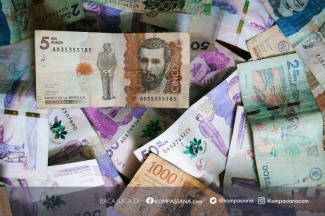Kevin Tan, Founder and President of Indonesia Berbicara
Greece can learn a thing or two about dealing with its economic crisis from Argentina and Indonesia, two countries that took different paths in managing their currencies when they were hit by crisis. One led to a disaster and the other one became a model of a success story.
How Greece manages its currency may provide the key to the long road to recovery or even deeper tragedy, with the big question now being asked in Athens and in many European Union capitals: Should Greece stay in the Euro zone or should it revert to the drachma?
This question came up when Indonesia went into its severe monetary crisis in 1998 and Argentina in 2001. And the question being asked then was whether their currencies should be pegged to the US dollar.
It was Steve Hanke, the controversial economist from the John Hopkins University, who had proposed dollarization to solve the currency woes of developing countries.
He was instrumental in establishing new currency regimes in in many parts of the world, including Argentina, Estonia and Bulgaria, arguing that replacing domestic currencies with sound foreign currencies could help stabilize emerging market countries.
Argentina embraced Hanke’s idea in 1990, choosing the U.S dollar as legal tender replacing its own peso to contain the recurrent hyperinflation that had haunted it for much of the 1970s and 1980s. The theory went that this policy would reorient Argentina, strengthen its international competitiveness and give greater opportunities to small firms, and allow for aggressive social policies to help citizens get the most from the economy.
As the years went by, it became clear that these objectives were illusive even with the dollarization program. The economy never grew strong and Argentina could not compete with other countries and export never picked up.
Argentina could not manage its financial system and the country went into even larger deficit. In 1998, it went into another recession and never fully recovered to this day, in spite of a $40 billion international bail out led by the International Monetary Fund.
The chief lesson from Argentina is that changing currency does not automatically lead to healthier financial condition.
Just before Argentina disproved Hanke’s dollarization theory in 1998, Indonesia was just beginning to experience its own monetary crisis, and this led to some to suggest that Indonesia follows his theory in switching fully to the US dollar.
